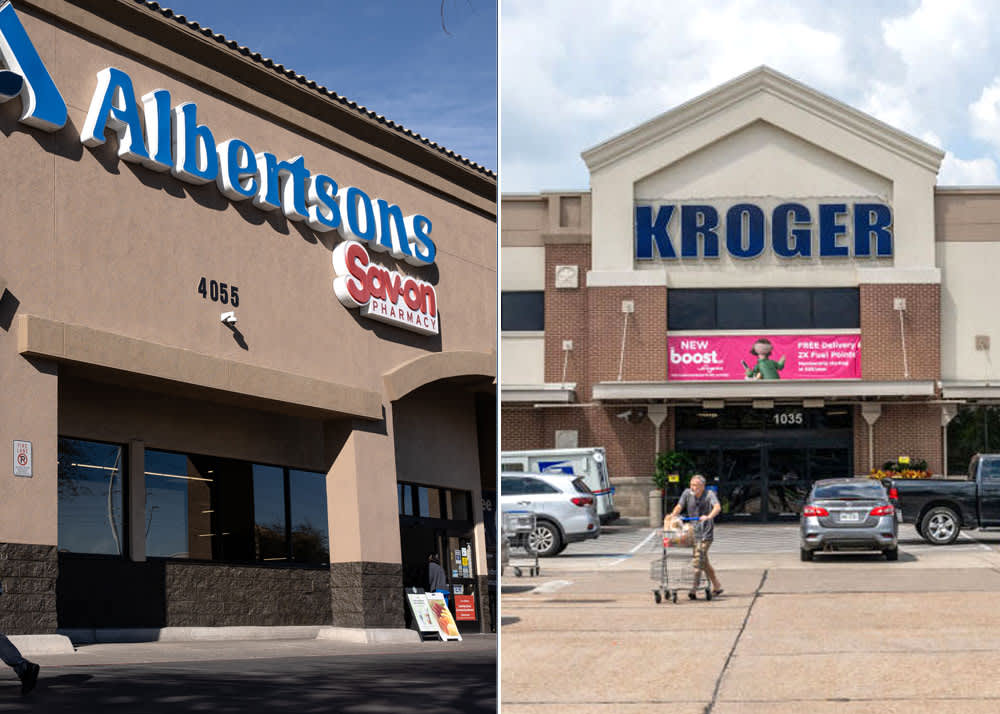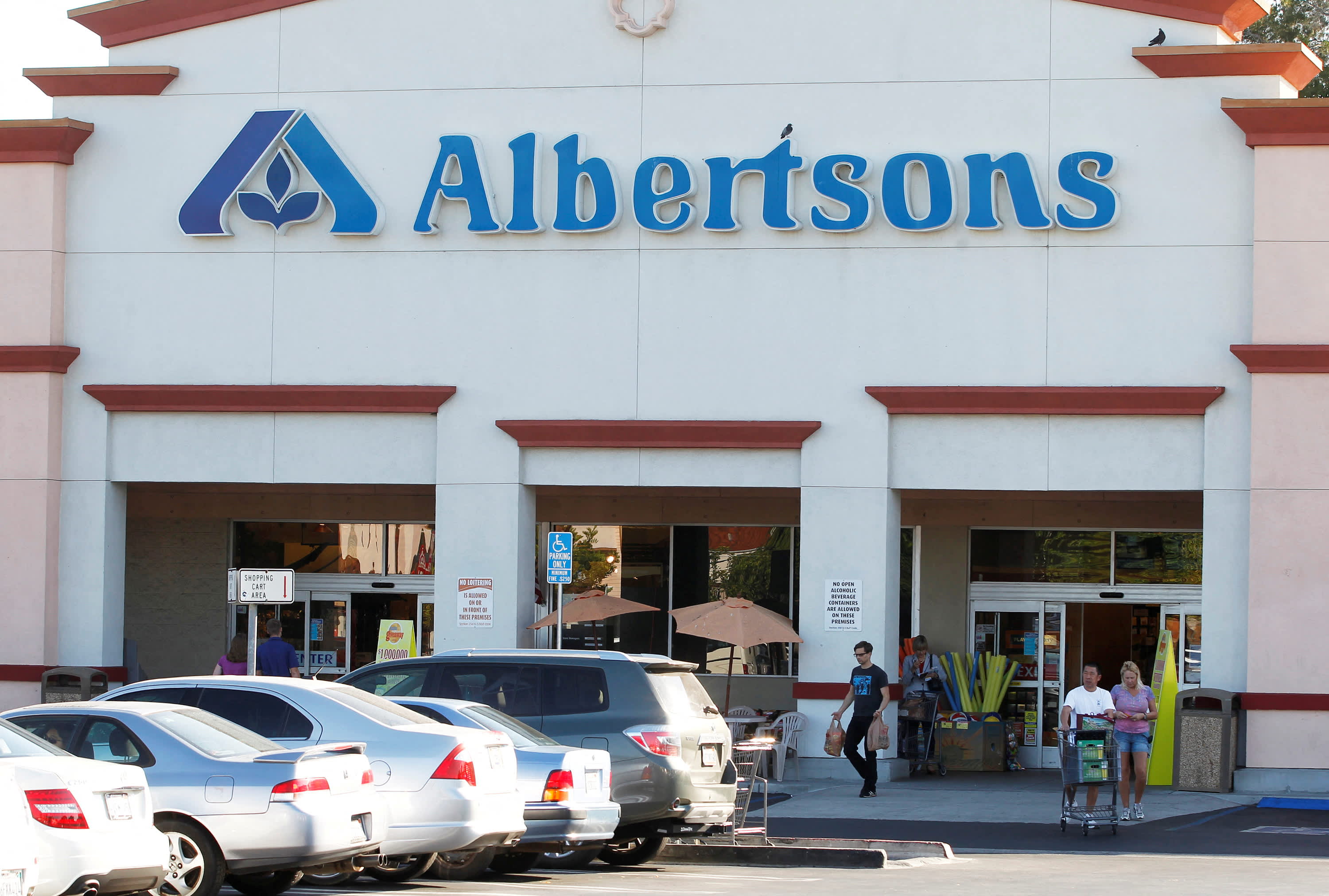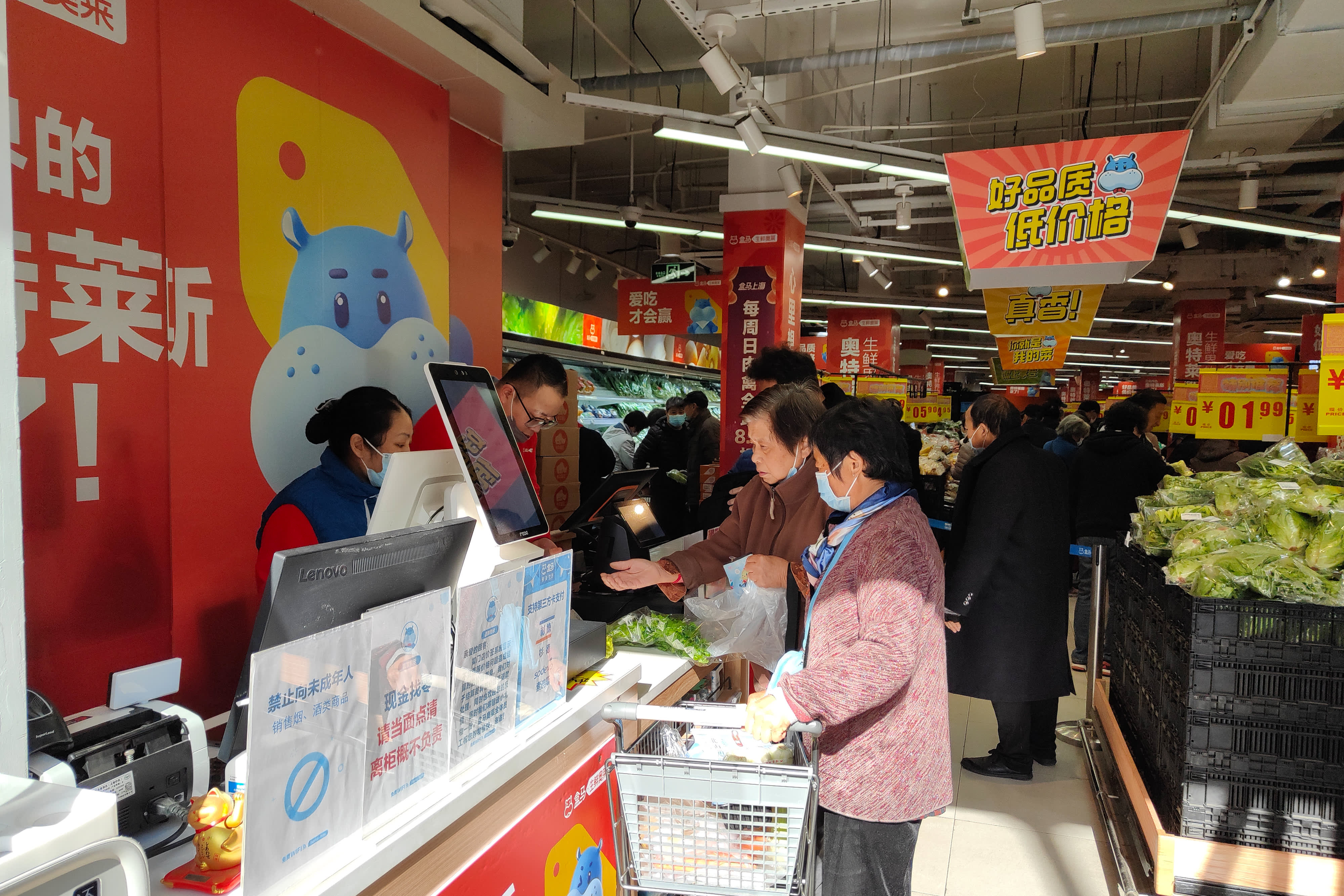Two of the nation’s largest grocers have agreed to merge in a deal they say would help them better compete with Walmart, Amazon and other major companies that have stepped into the grocery business.
Kroger on Friday bid $24.6 billion for Albertsons Companies Inc., the owner of New England grocery chains Shaw's and Star Market, which have over 100 locations across New England.
WATCH ANYTIME FOR FREE
Stream NBC10 Boston news for free, 24/7, wherever you are. |
Kroger, based in Cincinnati, Ohio, operates 2,800 stores in 35 states, including brands like Ralphs, Smith’s and Harris Teeter. Alberstons, based in Boise, Idaho, operates 2,220 stores in 34 states, including brands like Shaw's, Star Market, Safeway and Jewel Osco. Together the companies employ around 710,000 people.
Some of the companies’ markets have significant overlap, such as Southern California, Colorado, Seattle and parts of the Midwest and Texas, Simeon Gutman, a retail analyst for Morgan Stanley, wrote in a research note Thursday. Other regions, such as the Northeast and Southeast, have very little overlap.
Get updates on what's happening in Boston to your inbox. Sign up for our News Headlines newsletter.
The deal will likely get heavy scrutiny from U.S. antitrust regulators, especially at a time of high food price inflation. If approved, the deal is expected to close in early 2024.
Together, the stores would control around 13% of the U.S. grocery market, assuming the sale or closure of around 400 stores for antitrust reasons, according to J.P. Morgan analyst Ken Goldman. Still, that is a distant second to Walmart’s 22% share. Amazon, which bought Whole Foods in 2017, is also a growing player in the space, with 3% share. Warehouse store Costco controls 6%.
How will the merger affect grocery store prices?
Grocers have been hit hard by inflation, with food prices rising 11.2% over this time last year, according to the Bureau of Labor Statistics.
Goldman said a stronger combined company could possibly help tame food price inflation, since it would have more power to reject food producers’ price increases.
Kroger said would reinvest approximately $500 million into price reductions, and spend $1.3 billion updating Albertsons stores and $1 billion on higher employee wages and improved benefits. Kroger also said the combined stores would provide greater access to fresh food. Together, the stores operate in 48 states and the District of Columbia.
But critics questioned a merger at a time of high food price inflation. Food prices rose 13% in September compared with last year, according to U.S. data released Thursday.
“A Kroger-Albertsons deal would squeeze consumers already struggling to afford food, crush workers fighting for fair wages and destroy independent, community stores,” said Sarah Miller, executive director of the American Economic Liberties Project, a nonprofit that supports stronger corporate accountability and antitrust measures.
It was no secret that Albertsons was thinking about selling the company. The chain announced in February that its board was reviewing options to enhance shareholder value, including developing new businesses or a sale.
Kroger has long outperformed Albertsons in key areas, including the development of store brands and advanced technology, said Neil Saunders, managing director of Global Retail Data, a market research company. Last year, for example, Kroger opened the first of 20 planned warehouses where robots help fulfill delivery orders.
Kroger and Albertsons by the numbers
According to CNBC, Kroger has 2,800 stores in 35 states, employing 420,000 people. They have 25 different banners, including Fred Meyer, Ralphs, King Soopers and more. It has a $33.3 billion market capitalization.
Albertsons, meanwhile, has 2,200 stores in 34 states and Washington, D.C. and employs 290,000 people. They have 22 banners, including Safeway, Acme, Tom Thumb and others. It has a $15.2 billion market capitalization.
How many Shaw's and Star Market stores are there in Massachusetts and across New England?
According to their website, Shaw's has 55 stores in Massachusetts, plus another 26 in New Hampshire, 19 in Maine, 19 in Vermont and eight in Rhode Island.
Star Market has another 21 locations in Massachusetts, mostly in the Greater Boston area.
There has been no word yet on whether the merger will impact any local Shaw's or Star Market stores.
The Associated Press and CNBC contributed to this report.




